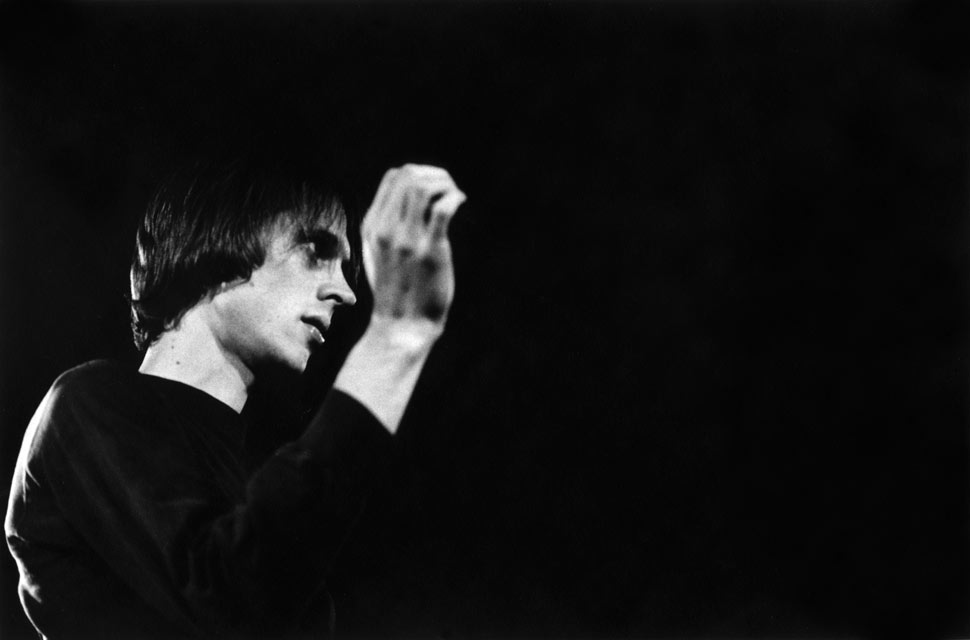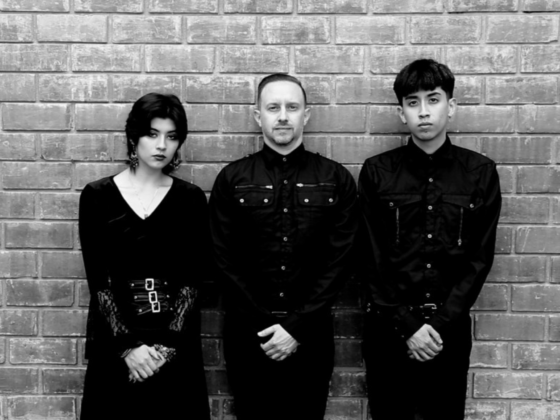Life in the hive puckered up my nightA kiss of death, the embrace of lifeOoh, there I stand ‘neath the Marquee MoonBut I ain’t waiting, uh-uh
The mighty guitar genius Tom Verlaine, legendary frontman of NYC’s art-punk band Television and countless other solo projects, has passed away after a brief illness at 73. Verlaine’s signature reductionist guitar chops were a game changer; he was a virtuoso and creative juggernaut.
Born Thomas Miller in 1949, Verlaine’s musical background was jazz, starting off with piano and saxophone as a fan of Stan Getz, then moving to guitar by his adolescence, inspired by the Rolling Stones and Miles Davis. With these varied interests and training, Verlaine developed a unique personal, experimental style.
“I never played guitar along with records, so I never learned all the speed licks everybody gravitates to when starting out,” Verlaine told Guitar Player in 2005. Instead he started experimeting with close miking, delay, reverb, slap echo, phasing/flanging, and tremolo – all techniques later developed or riffed on by bands that would evolve into a shoegaze sound, although Verlaine himself rarely used heavy distortion. He was, however, instrumental in bringing the “surf” guitar sound into the rock world.
Verlaine struck up a friendship with a fellow student, Richard Meyers, at the boarding school where they attended – and quickly discovered that they shared a passion for music and poetry. The two managed to escape school and fled to New York City, where they shed their pasts and created their stage names: Tom Verlaine (after the poet Paul Verlaine) and Richard Hell.
“Tom Verlaine and Television were for me the most inspiring: They were not glamorous, they were human.” – Patti Smith
Verlaine frequented the Poetry Project at St. Mark’s Church; around the same time, Richard Hell founded a poetry magazine and the Dot Books imprint. Hell and Verlaine began collaborating on poems, sharing a typewriter, with the intent to publish their work as well as that of Patti Smith’s (who Verlaine dated for a time). As their writing experiments progressed, Hell thought it would be fun to conceive their work as that of an imagined third person – one who was female – so they created a pseudonym called ‘Theresa Stern.’
“Feminism and androgyny and transvestitism were in the air,” Hell wrote. ‘Her’ debut book, Wanna Go Out? was published in 1973. They all abandoned ship, however, when they transferred their energies into music. Hell and Verlaine began a short-lived band called The Neon Boys, which, despite auditions from Chris Stein and Dee Dee Ramone, failed to take off. They reformed as Television, recruiting Richard Lloyd on guitar, and began making their rounds in the NYC punk club circuit at CBGB’s and Max’s Kansas City.
Television stood out in the sea of three-chord, 50s-inspired punk; where his peers mostly ended a track within three minutes – Marquee Moon clocks in at over ten. Verlaine’s droll vocal delivery of his poetry, coupled with his flamboyant musicianship, remain unmatched to this day.
Television released their monumental debut album Marquee Moon in 1977 (featuring a Robert Mapplethorpe-photographed cover), with the follow-up Adventure, and a self-titled album in the early 90s. Verlaine’s musicianship has stood the test of time and influenced countless others in the world of post-punk. His guitar chops were frequently lauded by his peers. Verlaine would go on to release a number of solo albums and appeared as a musician on countless collaborations. He co-wrote the song Horses with Patti Smith, and played on several more of her albums; he also collaborated with the Smashing Pumpkins’ James Iha, Sonic Youth’s Lee Ranaldo and Steve Shelley, Wilco’s guitarist Nels Cline. He had been in talks to record with Jeff Buckley before the latter’s sudden drowning in 1997.
Verlaine’s passing was announced by Patti Smith’s daughter, Jesse Paris Smith.
Blondie’s Chris Stein added, “good man.”














 Or via:
Or via: